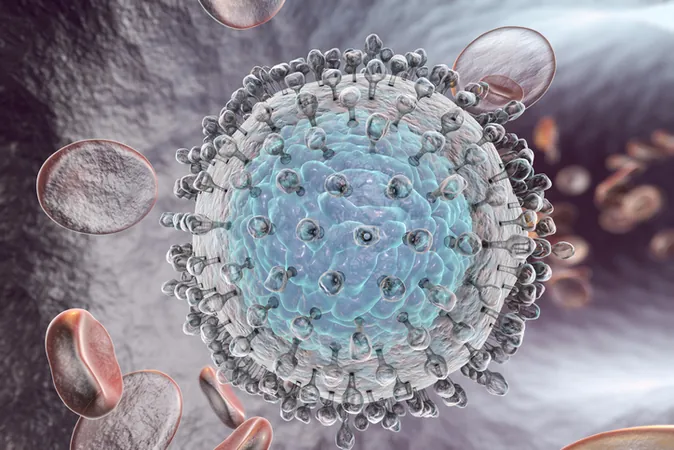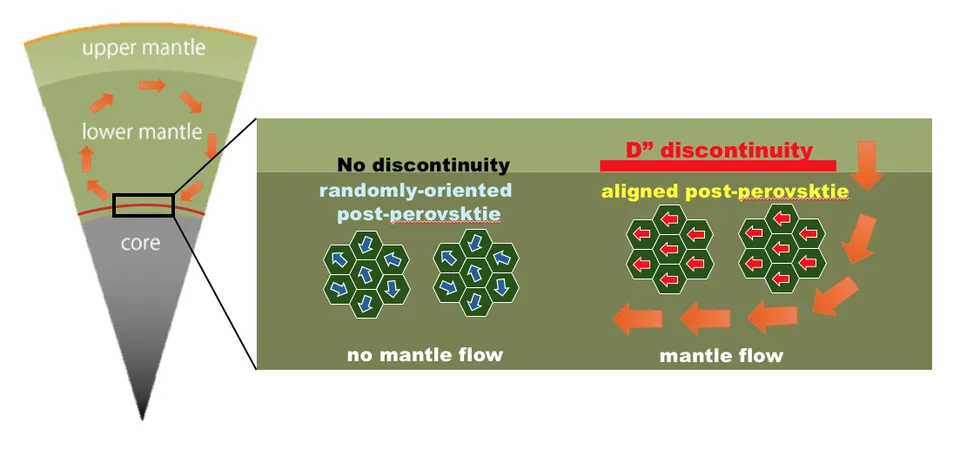
Breakthrough Discovery: How Hepatitis C Sparks a Dangerous Autoimmune Disease!
2025-01-15
Author: John Tan
Groundbreaking Study Reveals Link Between Hepatitis C and Autoimmune Disease
In a groundbreaking study published in the journal *Immunity*, researchers from the Garvan Institute of Medical Research in Australia have unveiled a critical connection between hepatitis C virus infections and the onset of cryoglobulinemic vasculitis, a severe autoimmune disease that leads to inflammation and the deposition of abnormal proteins in blood vessels.
Understanding the Mechanisms Behind Autoimmunity
While other viral infections have been linked to various autoimmune diseases, the precise mechanisms behind these triggers have remained a mystery—until now. The research indicates that mutations in B cells, along with viral proteins, work together to unleash an autoimmune response, paving the way for cryoglobulinemic vasculitis. This challenges the previous belief that viral proteins mimic the body’s own proteins, provoking an attack by the immune system.
Expert Insights on the Discovery
“This discovery fundamentally changes our understanding of how infections can lead to autoimmune diseases,” says Chris Goodnow, a professor at the Garvan Institute and co-lead author of the study. “By identifying these rogue clones, we can hone in on targeting them, which could revolutionize treatment methodologies for autoimmune diseases.”
Impact of Hepatitis C on Global Health
Hepatitis C affects approximately 58 million people worldwide, with about 15% of these individuals developing cryoglobulinemic vasculitis. In their study, the research team utilized cutting-edge single-cell multiomic technology to analyze samples from four patients suffering from both hepatitis C and cryoglobulinemic vasculitis, aiming to uncover the autoimmune pathway triggered by the virus.
Mutations and Autoimmunity
Their research revealed that even after the hepatitis C virus had been cleared, patients with cryoglobulinemic vasculitis harbored mutated B cell clones similar to those found in certain blood cancers, including leukemia and lymphoma. “Our findings indicate that three types of genetic mutations are necessary for this autoimmune disease to manifest,” stated Dan Suan, PhD, co-lead author and clinical director of the Hope Research Program at Garvan.
The Role of B Cell Mutations
Two of these mutations are a regular part of B cell development, but the presence of chronic viral particles creates persistent immune stimulation. The third mutation, linked to blood cancer development, occurs randomly over time. This unique interplay of mutations creates an environment conducive to the proliferation of B cells and ultimately triggers the autoimmune condition.
Future Implications of the Research
The implications of this research are vast. The newly discovered mechanisms could lead to improved predictive models and preventive strategies for autoimmune diseases, including cryoglobulinemic vasculitis. Additionally, the insights garnered from this study could drive the development of more targeted therapies, moving beyond merely managing symptoms to tackling the root causes of autoimmune diseases.
The Path Forward for Autoimmune Disease Research
“Understanding how B cell mutations can drive autoimmunity is crucial in our quest to eradicate autoimmune diseases rather than just alleviate their symptoms,” added Suan, emphasizing the potential of this research to transform treatments and outcomes for millions afflicted worldwide.
Conclusion and Future Updates
As the scientific community digs deeper into the intimate relationship between viral infections like hepatitis C and autoimmune diseases, this research may pave the way for life-saving advancements and a brighter future for those battling these debilitating conditions. Stay tuned for more updates on this important study and its potential ramifications in the medical field!




 Brasil (PT)
Brasil (PT)
 Canada (EN)
Canada (EN)
 Chile (ES)
Chile (ES)
 Česko (CS)
Česko (CS)
 대한민국 (KO)
대한민국 (KO)
 España (ES)
España (ES)
 France (FR)
France (FR)
 Hong Kong (EN)
Hong Kong (EN)
 Italia (IT)
Italia (IT)
 日本 (JA)
日本 (JA)
 Magyarország (HU)
Magyarország (HU)
 Norge (NO)
Norge (NO)
 Polska (PL)
Polska (PL)
 Schweiz (DE)
Schweiz (DE)
 Singapore (EN)
Singapore (EN)
 Sverige (SV)
Sverige (SV)
 Suomi (FI)
Suomi (FI)
 Türkiye (TR)
Türkiye (TR)
 الإمارات العربية المتحدة (AR)
الإمارات العربية المتحدة (AR)